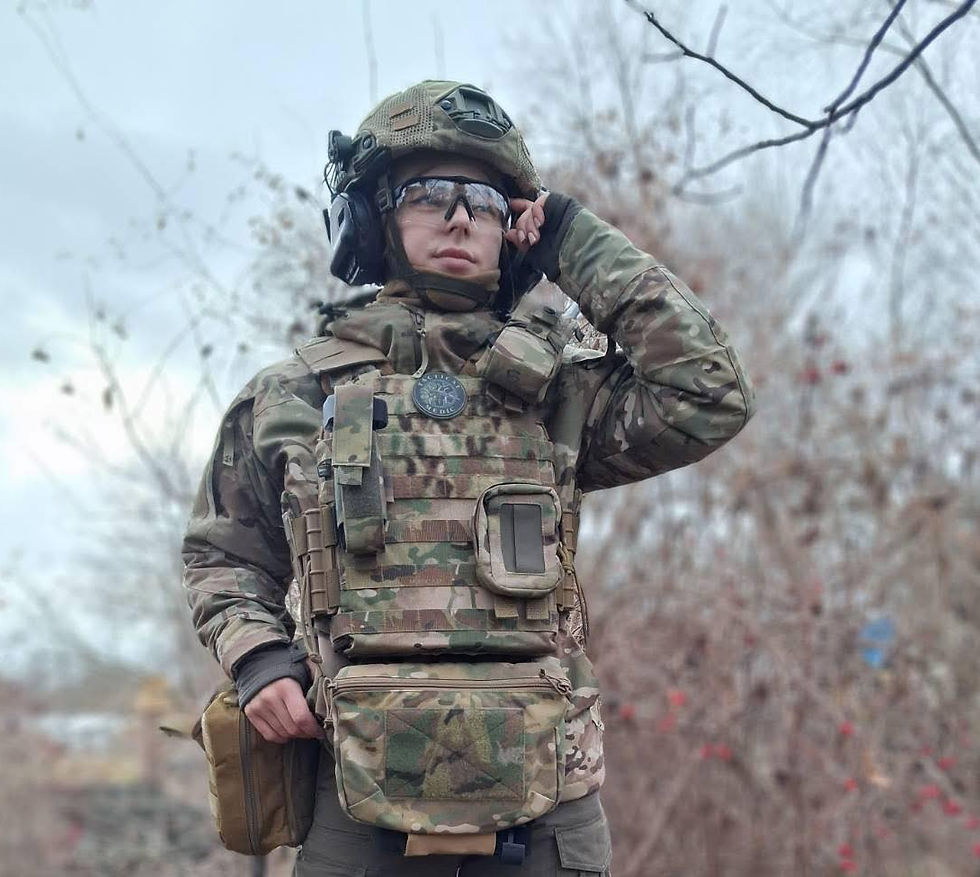“I’m from the town of Stryi in the Lviv region, and I’ve had patriotic upbringing since childhood.” — the story of Yaryna Huk, call sign "Horobchyk"
- Oleksiy

- Oct 23, 2025
- 2 min read
Yaryna “Horobchyk” Huk went on her first rotation with the Hospitallers in August 2023.
Yaryna doesn’t have a medical background — she studied architecture and later worked as an interior designer.
“I submitted two applications to join the battalion. I started messaging some people, and they replied, ‘Oh, right now they’re only taking doctors, it’s hard to get in,’ but eventually someone wrote back to me. Then my friend "Sobol" asked, ‘Are you ready?’ Of course, I said yes, because I had already quit my job.”
“If it weren’t for the full-scale invasion, I probably wouldn’t have joined the battalion. But now, after two years, I’ve gained experience, and I simply can’t stop going — it’s become a small personal mission. If you have skills, you should know how to use them properly.”
Since then, "Horobchyk" has lost count of how many rotations she’s been on, but she keeps going regularly — a month on, a month or two off. Sometimes she takes freelance projects, but she admits it’s difficult to choose expensive materials and fixtures for clients, knowing that the same money could be donated instead.
“I usually work at stabilization points or in casevacs with a short evacuation line. At the stabilization points, many people pass through your hands, and you feel more involved. It’s actually relieving because there’s constant movement. When you’re in a casevac, you’re mostly on standby and sitting around a lot. It’s especially hard when you have to work with people you know.”
“At first, I took everything very personally, and that affected my health. Now I think, ‘You’re doing something — and that’s already good.’ For the most part, rotations just become work: if you can help, you help — that’s it, because there are always more wounded.”
“I live with plans and hope that the war will end sooner or later. But of course, I don’t want it to end in our defeat. I think eventually we’ll all have to mobilize. No one wants their loved ones to be out there, but no one wants to live under occupation or constant shelling either — so we need to find the golden middle.”












Comments